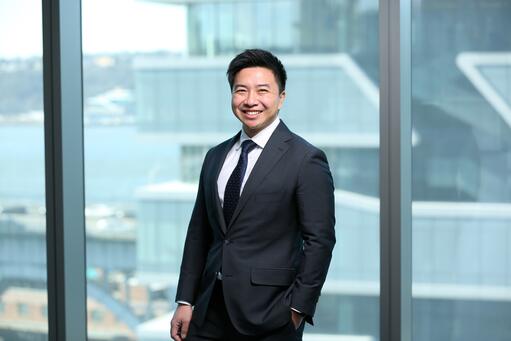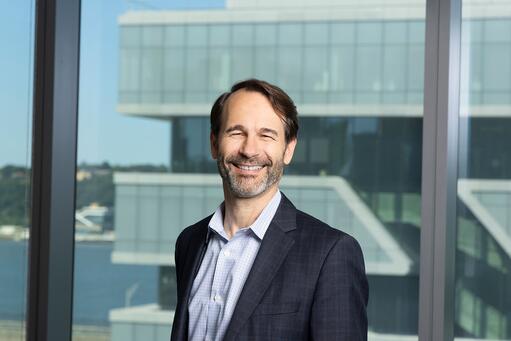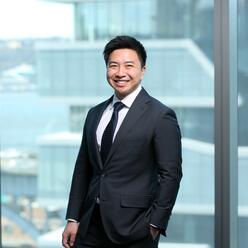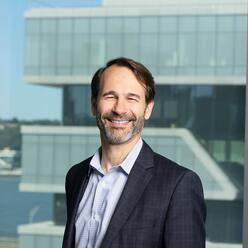“Social Enterprise” is the intersection of business and the interests of society. This includes how businesses impact society through their strategies and operations — for example, by reducing their environmental footprint, developing products, services, and opportunities to reach marginalized communities, creating positive change through philanthropy, and a myriad of other activities. It also includes the application of business and management principles to a wider range of organizations — governments, nonprofits, and social ventures — to perform at their best.
Why social enterprise? Businesses are essential to addressing many of society's social and environmental challenges by innovating and scaling solutions. Furthermore, growing evidence from research shows that to be successful over the long term, companies need to be more thoughtful in managing their social impact. Not only are customers becoming more sensitive to the broader impact of the goods and services they buy, but employees and investors increasingly place a premium on their association with businesses that engage in responsible practices.
The Tamer Institute for Social Enterprise and Climate Change at Columbia Business School
The mission of the Tamer Institute for Social Enterprise and Climate Change is to educate on the use of business tools, entrepreneurial skills, and management capabilities to address social and environmental challenges. We achieve this by supporting the creation and communication of new research ideas, and by providing curricular and extra-curricular opportunities for Columbia University students to apply sustainable business practices that mitigate impact on the environment and expand access to resources for entrepreneurs, business leaders, and other stakeholders from communities or with backgrounds that have traditionally been overlooked. Our goal is to be the pre-eminent hub for connecting scholarship to practical impact in the world of social enterprise and climate change.
We have traditionally been student-oriented in our efforts, and our institute remains first and foremost focused on developing the next generation of social enterprise leaders. We offer a full menu of opportunities that prospective students have come to expect from a flagship program in social enterprise: our summer internship and loan assistance programs support students working with organizations in the United States and abroad; the Tamer Fund for Social Ventures provides seed grants to Columbia-affiliated social venture startups; Microlumbia is a student-run impact investing fund; Pangea Advisors is an international development pro bono consulting program that connects students globally to provide guidance and advice to nonprofits and budding social entrepreneurs; and our Nonprofit Board Leadership Program connects students to board mentors at leading New York City nonprofits from The Harlem Boys and Girls Club to The American Ballet Theater.
Several new initiatives also aim to expand the impact of the institute’s existing programming. These include the Inclusive Entrepreneurship Initiative, which is devoted to creating venture ecosystems in local communities through bridging social, digital, and economic divides. Here, students engage directly with key leaders and organizations that aim to reduce barriers to financial resources, mentorship, and networks for entrepreneurs and business owners across Harlem and other local New York City neighborhoods. Through the institute’s ReEntry Acceleration Program (REAP), Justice Through Code (JTC), and Startup Works programs, business students gain valuable leadership experience by serving as mentors, coaches, and instructors for incarcerated and justice-impacted people facing systemic barriers to career track employment and entrepreneurial opportunities.
The institute has led the recent expansion of Columbia Business School’s focus on climate change, coordinating faculty research and designing new curriculum in the core and elective courses. For students, the Three Cairns Fellowship program provides an opportunity to work on year-long projects for external clients focused on the intersection of business and climate. For academics, practitioners, and students, the annual Climate Business & Investment Conference provides a forum for learning from leaders on the latest advances in tackling climate change. The Climate Knowledge Initiative provides business leaders with the curated, actionable knowledge needed to pick investable and scalable green technologies while unapologetically flagging areas where business and public interests diverge. The Open Climate Curriculum is a platform for university faculty globally to share syllabi and create new materials with the objective of accelerating the teaching of climate change to future business leaders.
From Research to Practice
With our mission, we have taken to heart the School’s vision of connecting research and faculty to real-world practice. It is this integration of students, practitioners, researchers, and faculty members that sets our program apart from many of its peers. The program itself is overseen by professors actively engaged in research and in real-world practice. Topics range from entrepreneurship in marginalized communities in New York City to financing clean energy projects internationally. Our work is often in collaboration with companies, public and nonprofit organizations, and social and environmental ventures, seeking answers that help us to understand global challenges while helping specific organizations function more effectively. This engagement is all the more exciting given Columbia’s New York City location, with a dynamic and vibrant social enterprise sector and a regular stop for leaders and industry practitioners from around the world.
In addition to publishing our work in peer-reviewed academic journals, we take pride in communicating with a broader audience through case-writing, publishing in the popular press, and bringing research — our own and that of others in our fields — to the student experience.
This connection to student life is crucial. Student efforts are often supported by faculty and alumni mentoring and guidance while in school, and they often serve as advisors to social ventures — both for-profit and nonprofit — that coalesce after graduation. But more than anything, it is the informal interaction among faculty, researchers, students, alumni, and the experts in practice in New York City and beyond, that makes Columbia such a special place to be involved in social enterprise for all of us.

Dan Wang
Dan Wang is Lambert Family Professor of Social Enterprise and (by courtesy) Sociology at Columbia Business School, where he is also the Co-Director of the Tamer Institute for Social Enterprise and Climate Change. His research examines how social networks drive social and economic transformation through the analysis of global migration, social movements, organizational innovation, and entrepreneurship.

Bruce Usher
Bruce Usher is a Professor of Professional Practice and the Elizabeth B. Strickler '86 and Mark T. Gallogly '86 Faculty Director of the Tamer Institute for Social Enterprise and Climate Change at Columbia Business School. The Tamer Institute educates on the use business knowledge, entrepreneurial skills, and management tools to address social and environmental challenges. Professor Usher teaches courses on climate change, finance and business, and is a recipient of the Singhvi Prize for Scholarship in the Classroom, the Lear Award, and the Dean’s Award for Teaching Excellence.

